Oscar Scandals
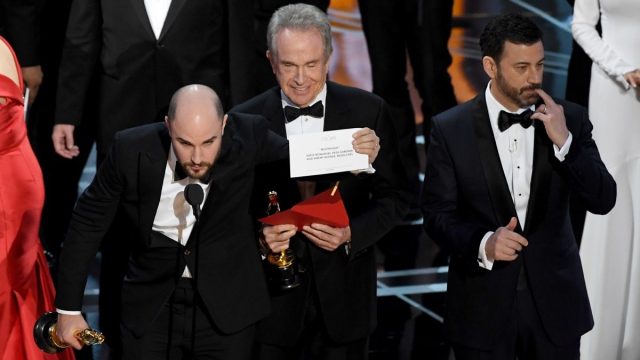
There was a time when the annual Oscar ceremony commanded one of the largest live television audiences of the year, rivaling major sporting events. In 1998, when Titanic won the Best Picture Oscar, about 55 million people watched the ceremony.
But how things have changed. Only 16.62 million people watched Last year—historically terrible numbers, despite a 60 percent jump over the previous year’s pandemic-addled show.
But those 16 million-odd viewers were rewarded with view to the biggest headline-grabbing moment in movies history—and the latest in a tradition of Oscar scandals. Keep reading to be reminded about last year’s dust-up and five controversies that reverberated throughout Hollywood.
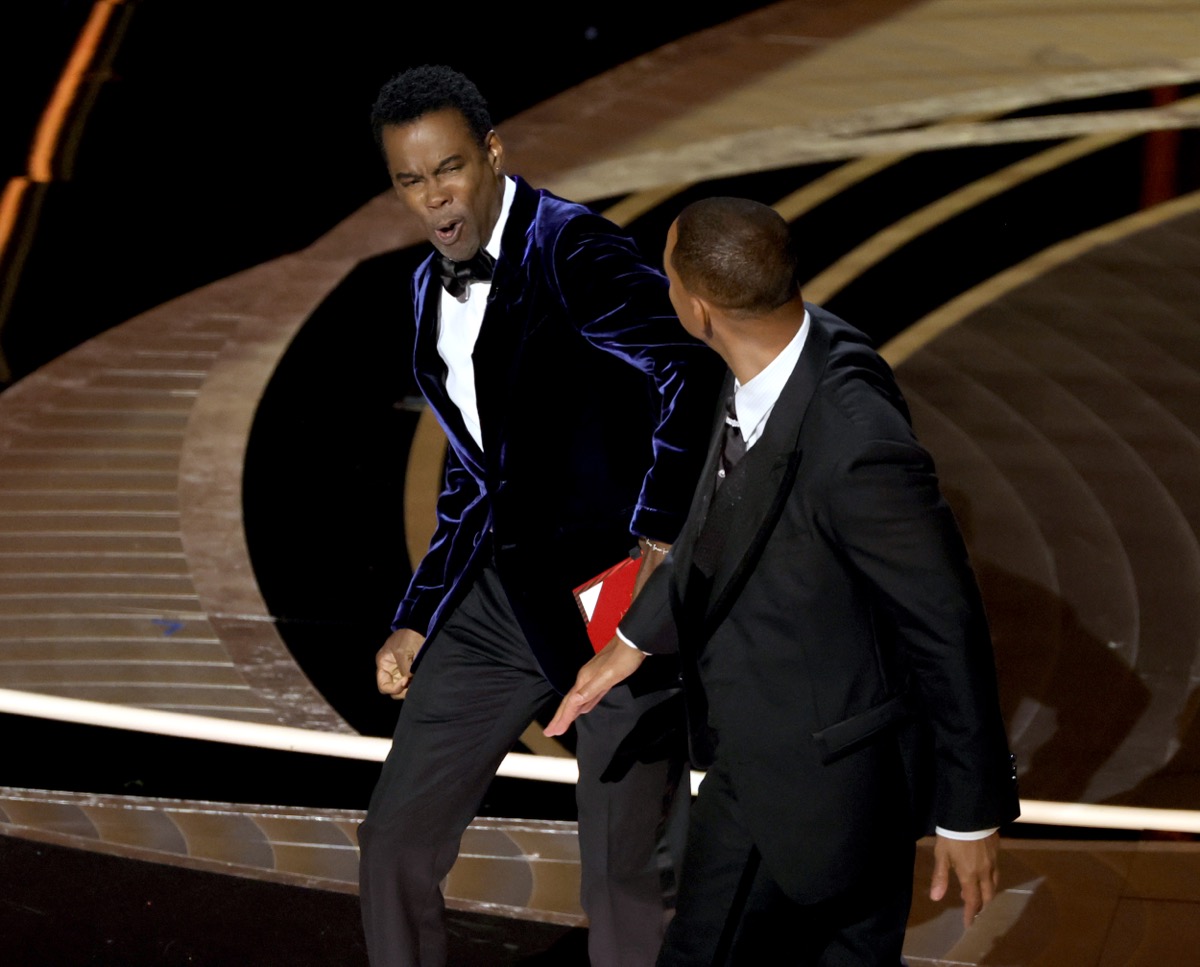
March 27, 2022 was supposed to be Will Smith’s night. The move star entered Hollywood’s Dolby Theatre the odds-on favorite to win Best Actor for his leading role in the sports drama King Richard. But then came host Chris Rock’s opening monologue. Amid a series of jabs at the night’s nominated films and the famous faces in the audience, the comedian made a crack about Smith’s wife Jada Pinkett Smith’s shaved head resembling Demi Moore’s bald pate in the 1997 movie G.I. Jane. It was a cruel jab, given the actor had long been open about her struggke with alopecia, and despite an initial grin, Smith apparently decided the insult was too much to bear.
After shouting at the host from the audience, the soon-to-be Academy Award-winner stepped onto the stage and slapped Rock across the face. The comedian quickly got things back on track, and Smith even later offered something of an apology as he accepted his trophy, but the show never really recovered.
For weeks afterward, talk of “The Slap” dominated entertainment news, and Smith’s subsequent apology and resignation from the Academy couldn’t save him from being banned for a decade.
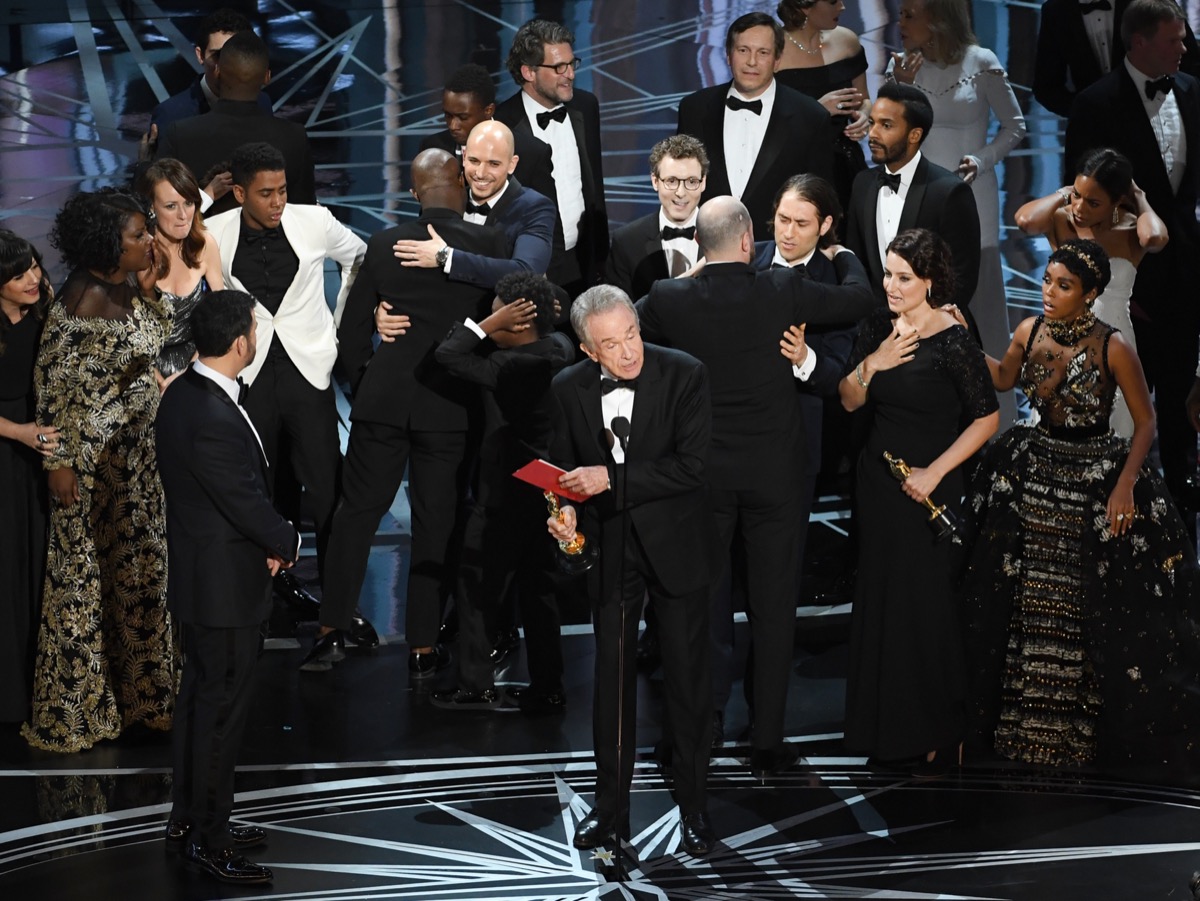
Before “The Slap,” it was hard to imagine any Oscar moment would ever top the climax of the 2017 ceremony, when presenters Warren Beatty and Faye Dunaway announced that tinseltown musical La La Land—which had already picked up six statuettes that evening, including Best Original Song, Best Actress for Emma Stone, and Best Director for Damien Chazelle—had been crowned the year’s Best Picture, an honor it held onto… for about five minutes. Midway through the acceptance speeches by the film’s producers, host Jimmy Kimmel and a baffled-looking Beatty returned to the stage to reveal that Barry Jenkins’ Moonlight was the actual winner.
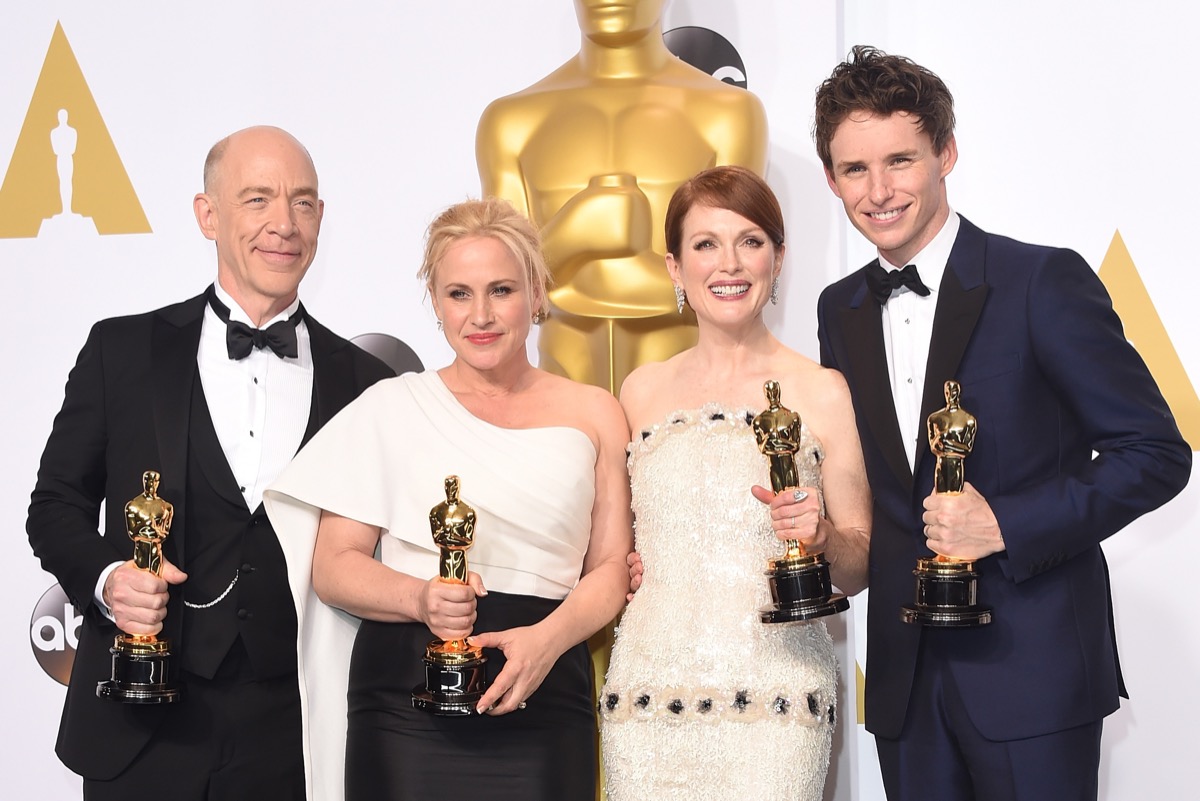
The Moonlight debacle may not have hit quite as hard if it hadn’t followed so closely on the heels of another controversy that rocked the Academy only a few years earlier. When the nominations for the 2015 Oscars were announced in January of that year—and all 20 of the actors up for trophies were white—attorney, pop culture obsessive, and prolific Twitter user April Reign was inspired to create the #OscarsSoWhite hashtag.
What could have been a mere viral tweet instead caught fire, focusing attention on the Academy’s woeful track record at honoring creatives of color with awards, both in the acting categories and for behind-the-scenes roles. The controversy, which arose in between more far-reaching social media-led movements #BlackLivesMatter and #MeToo, ended up sparking real change in the organization, which a year later announced a goal to increase its diversity.
In 2020, The New York Times assembled oral history of “the hashtag that changed the Oscars,” in which Black filmmakers including Spike Lee and Ava DuVernay talked about its far-reaching effects.
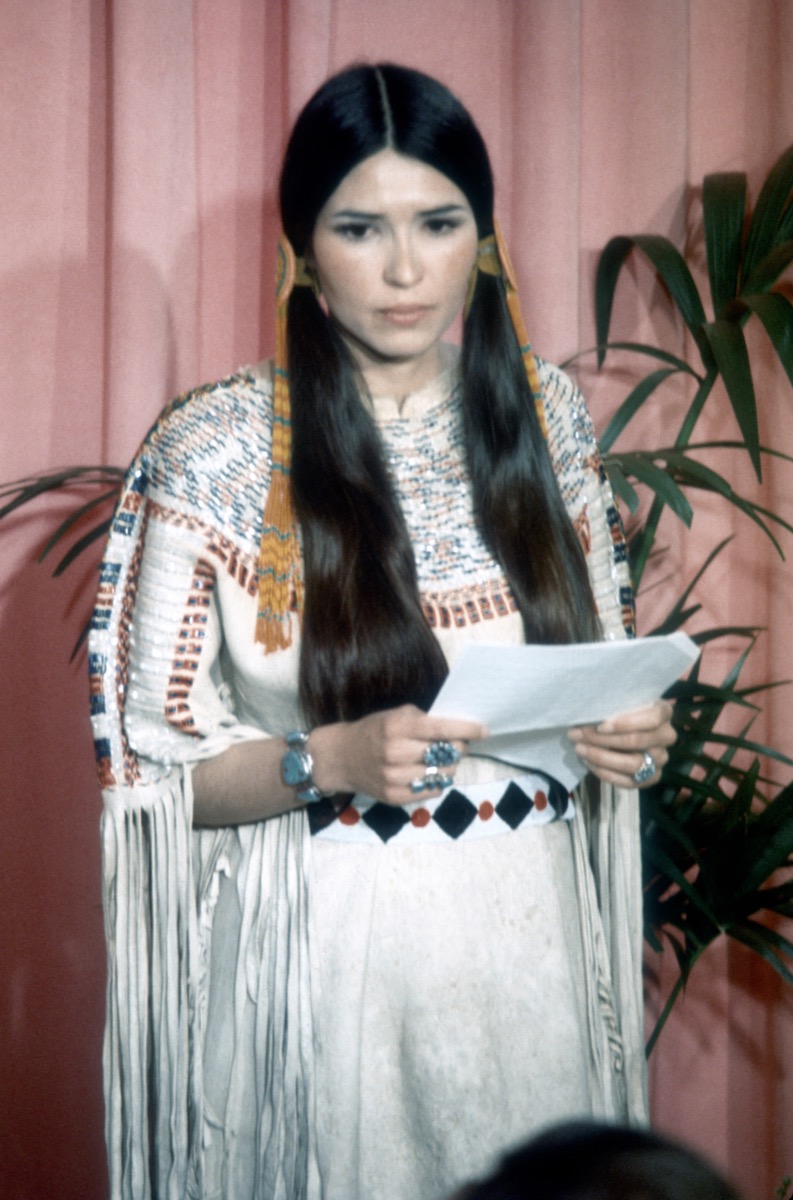
Race was also a major motivating factor in one of the biggest Oscar scandals of the 1970s, when, in 1973, Marlon Brando declined to accept his Best Actor Oscar for his performance in The Godfather, sending in his stead Native American actor Marie Louise Cruz, also known as Sacheen Littlefeather. Littlefeather took to the stage and read a speech about Brando refusing to appear in protest of Hollywood’s treatment of Indigenous peoples, but her message was reportedly not well received by some in attendance at the ceremony.
She was met with a mix of boos and cheers, and rumors quickly spread that actor John Wayne had to be restrained by security guards as she was escorted from the stage.
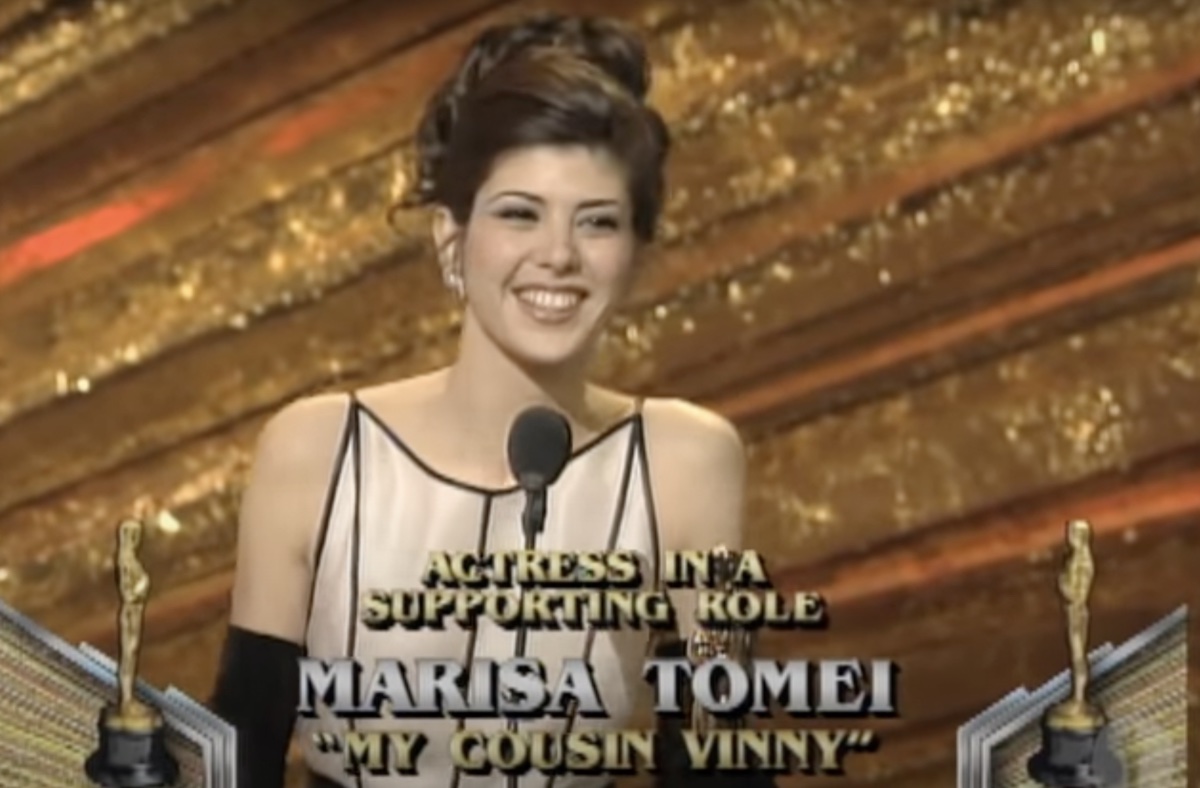
Marisa Tomei’s performance in the broad 1992 comedy My Cousin Vinny is hardly a typical example of awards bait, and though she played to gum-snapping perfection the role of a foul-mouthed, car-obsessed New Yorker who becomes a key witness in her boyfriend’s cousin’s murder trial, it seemed likely that her mere nomination for the Best Supporting Actress Oscar would have to suffice as her reward—until presenter Jack Palance ripped open the envelope and read out her name. What should have been one of the actor’s happiest achievements was soon tainted by a nasty rumor that Palance had read the wrong name when announcing the winner, and that the statuette should have gone to Vanessa Redgrave for Howards End.

When Adrien Brody was announced as the Best Actor winner for The Piano at the historic 75th Academy Awards in 2003, he couldn’t contain his exuberance. He rushed onto the stage to collect his trophy from presenter Halle Berry—and spontaneously pulled her into an embrace, kissing her on the mouth.
A visibly shocked Berry seemed to laugh the incident off, Brody gave his acceptance speech, and the night continued on. But 14 years later, Berry would confirm that not only was the kiss unplanned, but that she felt blindsided by it, telling Watch What Happens Live host Andy Cohen that the only thing going through her mind was “what the [expletive] is happening right now?”
While the moment still stands as one of the Oscars’ most memorable, it definitely hits differently in the wake of the film industry’s =MeToo movement.










